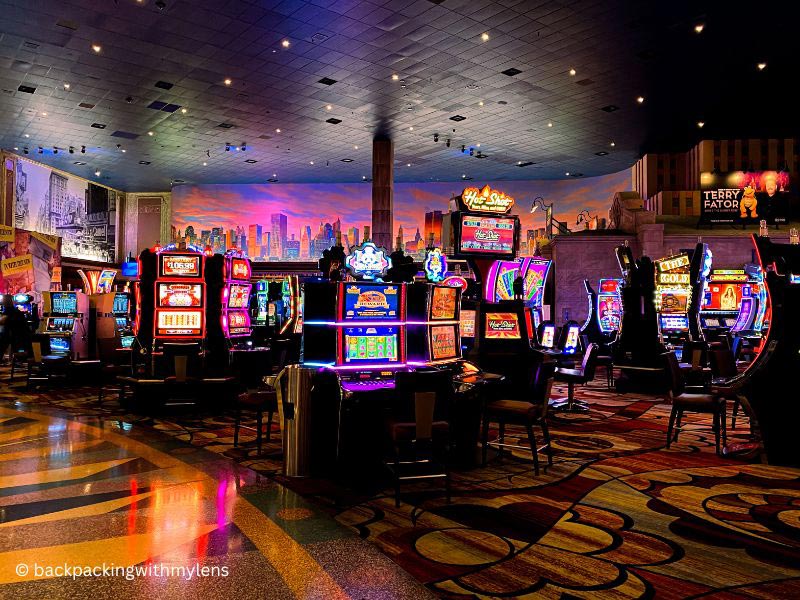
Casino games have long captured the imagination of individuals around the globe, becoming an integral part of both leisure and culture. From the shimmering lights of the Vegas Strip to the immersive experience of online gaming, these games evoke excitement, uncertainty, and sometimes even a sense of remembrance. They are not just simply pastimes; they have woven themselves into the fabric of human experience, influencing various aspects from film and melodies to fashion and literature.
The charm of casino games surpasses the gambling aspect, tapping into wider themes of serendipity, possibility, and psychology. As players gather around a card table or spin the roulette, they engage in an ancient ritual that echoes with our collective desire for thrill and instability. This obsession has led to the emergence of many references in movies, music, and gaming, showcasing how intensely entrenched these pastimes are in popular culture. Whether it is the high-stakes tension of a traditional heist movie or the colorful nightlife portrayed in videos, casino games have established a substantial niche that reflects our relationship with reward.
Historical Impact of Casino Games
Casino games have played a crucial role in cultural contexts throughout the ages. Stemming from ancient civilizations, forms of chance were often linked to rituals or gatherings. For example, early forms of gambling can be linked back to historic China and the Romans, where die games and betting on outcomes were common pastimes. These games not only served as leisure but also as means of social interaction, facilitating connections among people within communities.
As societies evolved, so did the complexity and structure of gambling games. The creation of official casinos in the 17th century, particularly in Italy, marked a significant shift in how games were perceived and structured. With specific spaces for gambling, the casino became a community center where people from various backgrounds convened. This change contributed to the legitimization of the industry, transforming it from a mere pastime into an organized industry that influenced the economy and policy.
The effect of gambling games on popular culture cannot be overlooked. As they were brought into the limelight in books and movies, games such as poker and 21 became symbols of chance, luck, and tactics. Famous figures and stories have emerged around these activities, illustrating societal attitudes towards luck, prosperity, and vice. This interest with casino activities has infiltrated various forms of media, cementing their place in the public imagination and connecting them to wider cultural stories throughout history.
Portrayal of Gambling Activities in Entertainment
Gambling games have long been a popular subject in various forms of media, reflecting both the excitement and nuances of gambling culture. Movies such as Ocean’s 11 and Casino Royal portray individuals who navigate intense situations, showcasing not only the attractiveness of the gambling environment but also the methods and choices that come with playing popular games like Texas Hold’em and 21. These movies often dramatize the excitement of winning and the potential results of losing, encapsulating the risks involved in betting.
TV programs have also explored the universe of gambling activities, often integrating them into the plot as a setting for character development and conflict. Series like Vegas depict the stories of casino workers and patrons, highlighting the vibrant, often disorderly energy of the gaming floor. Reality shows featuring high-stakes gambling competitions further emphasize the fascination of casino games, drawing viewers into the drama and strategy involved in each session. Through these portrayals, media not only engages but also prompts conversations about luck, expertise, and the character of randomness.
Video games have increasingly incorporated gambling activities into their design, allowing players to recreate the thrill of betting without financial exposure. Games within the landscape of digital gaming often include virtual slots, online poker, and other popular casino games, creating an immersive gameplay that mirrors real-life gameplay. These virtual portrayals make casino games accessible to a global audience, appealing to both gamblers and those who enjoy the rush of virtual experiences. As a result, the representation of gambling activities in media continues to shape societal views and cultural significance, highlighting their function in entertainment and the cultural landscape.
Impact of Casino Games on Society
Casino games have a meaningful impact on society, influencing multiple facets of culture and social behavior. They often function as a venue for community engagement, where people gather to experience a common experience. Casino trips with friends or trips to casinos become group events that foster connections and create memories. This communal aspect enhances the entertainment value of casino games, making them a favored choice for celebrations and leisure activities.
Additionally, casino games have been depicted in numerous movies, TV series, and written works, influencing views and attitudes towards gaming and gaming. Icons like James Bond competing in baccarat or the high-stakes poker scenes in films have cemented these games in the shared imagination. This depiction often glamorizes the culture associated with casino activities, attracting new players and impacting trends in both fashion and conduct. These portrayals can spark curiosity and lead to a deeper investigation of the nuances of gambling.
However, there are also negative implications associated with the popularity of gambling activities. The allure of quick monetary gain can lead to gambling addiction and economic troubles for some individuals. The community must grapple with these consequences, promoting responsible gaming and education of the dangers involved. Balancing the entertainment value of casino games with the risks is vital to ensure that they continue to be a positive aspect of our societal fabric.
DU88